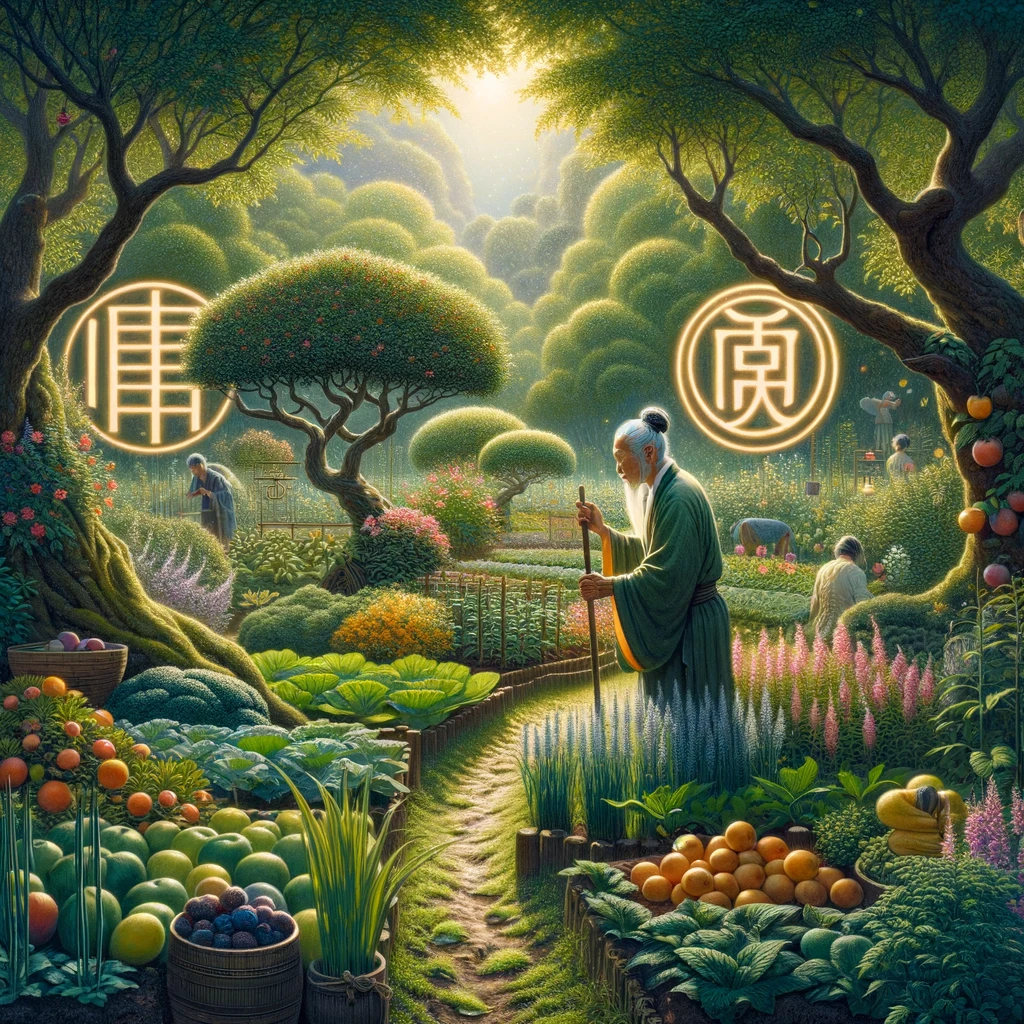

In a serene corner of the world, there was a gardener who cultivated a food forest as if painting a landscape with living strokes. He was a humble servant of the Dao, adhering to the principles of Wu Wei, action through inaction, nurturing the land without imposing his will upon it.
The gardener’s daily practice was guided by the wisdom of both Confucius and Laozi. He often recited, “” (Ren Zhe Ai Ren - The benevolent love others), embracing Ren, or benevolence, as Confucius taught, to care for every creature in his forest. He saw the divine in the interconnectedness of all life, whispering, “” (Dao Fa Zi Ran - The Dao follows the natural way), as he worked, affirming his trust in the natural order.
He did not seek to dominate but to coexist, reflecting on Laozi’s words: “” (Yi De Zhi Ren - Govern by virtue), and thus he cultivated De, moral virtue, in his heart. His forest was a place where free will blossomed, where plants and animals thrived in their innate patterns and rhythms.
When conflicts arose, he would softly recite, “” (Yi Zhi Bao Yuan, Yi De Bao De - Repay injury with justice, and repay kindness with kindness), as instructed by Confucius. He forgave transgressions, understanding that all beings, like him, were on their own path of spiritual evolution.
The gardener believed deeply in speaking the truth, but he did so with the grace of Confucius’ teaching: “” (Junzi He Er Bu Tong - Gentlemen seek harmony but not uniformity), offering his insights without expectation, respecting the diverse perspectives of others.
As he matured in spirit and age, he held onto the belief that he was worthy of divine revelation, as the Dao De Jing suggests, “” (Zhi Zhe Bu Yan, Yan Zhe Bu Zhi - Those who know do not speak, those who speak do not know), recognizing that true wisdom often lies in silent communion with the Dao.
As his final days approached, he did not fear the meeting with his creator. His heart carried the eternal warmth of Laozi’s words: “” (Da Ai Wu Jiang, Da De Zai Wu - Great love is boundless; great virtue is overwhelming). He had lived a life of harmony with the Dao, and he was ready to return to it, carrying with him the unconditional love and kindness for all creation.
And so, the gardener’s story became a parable of living in harmony with heaven and earth, a tale for the modern thinker to reflect upon, embodying the essence of Chinese wisdom that teaches balance, compassion, and understanding in the endless flow of life’s Dao.